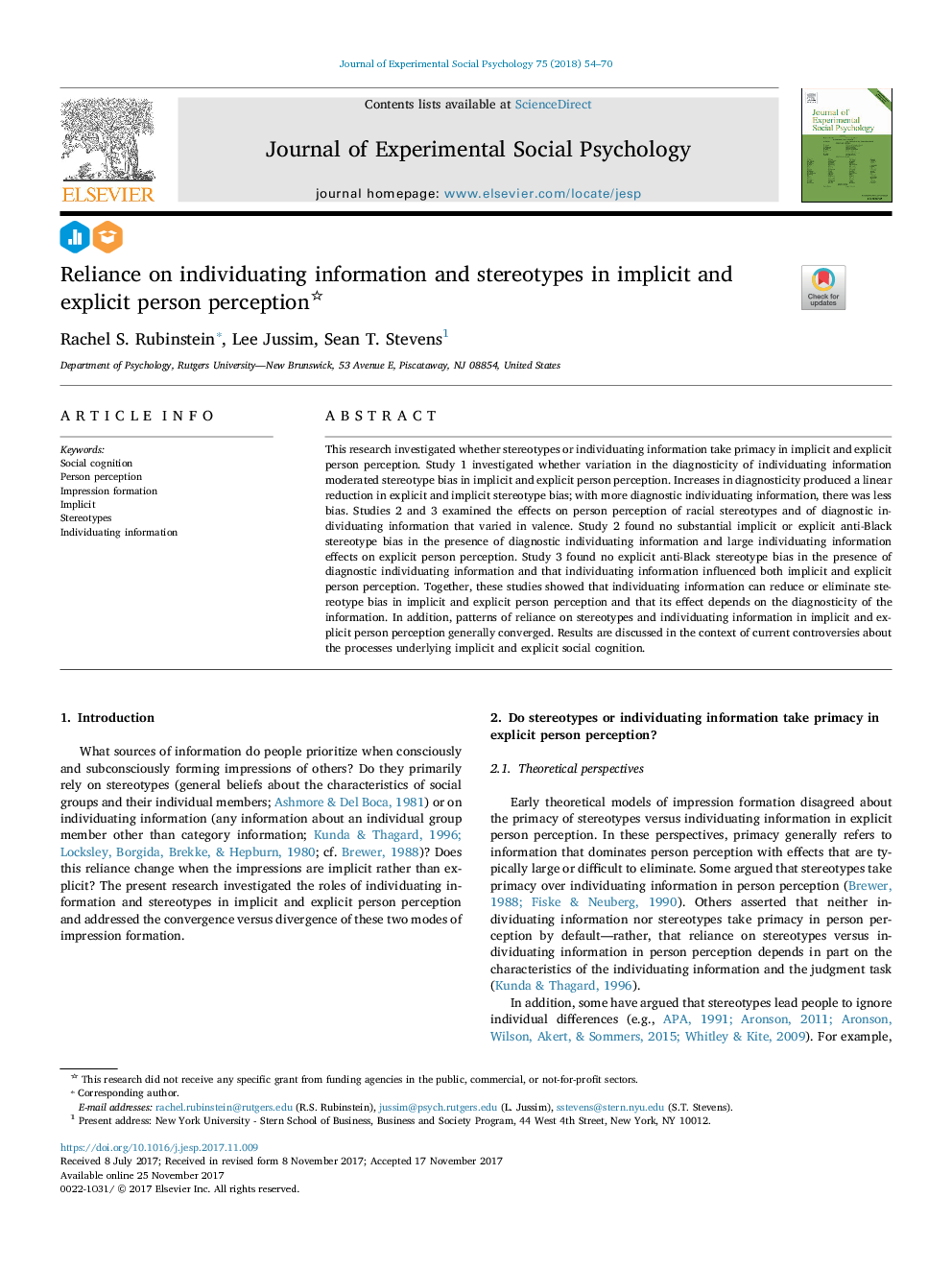ترجمه فارسی عنوان مقاله
اعتماد به اطلاعات فردی و کلیشه ها در ادراک افراد ضمنی و صریح
عنوان انگلیسی
Reliance on individuating information and stereotypes in implicit and explicit person perception
| کد مقاله | سال انتشار | تعداد صفحات مقاله انگلیسی |
|---|---|---|
| 127216 | 2018 | 17 صفحه PDF |
منبع

Publisher : Elsevier - Science Direct (الزویر - ساینس دایرکت)
Journal : Journal of Experimental Social Psychology, Volume 75, March 2018, Pages 54-70
ترجمه کلمات کلیدی
شناخت اجتماعی، ادراک شخص، شکل گیری افسردگی، نامتعارف کلیشه ها، اطلاعات فردی،
کلمات کلیدی انگلیسی
Social cognition; Person perception; Impression formation; Implicit; Stereotypes; Individuating information;
ترجمه چکیده
این تحقیق به بررسی اینکه آیا کلیشه ها یا اطلاعات فردی در ادراک افراد ضمنی و صریح از اولویت برخوردارند، بررسی شده است. در مطالعه 1 بررسی شد که آیا تنوع در تشخیص اطلاعات فردی منحرف شده استروژنی منفی در ادراک فردی واضح و صریح است. افزایش تشخیص باعث کاهش خطی در تعصب کلیشه و ضمنی است. با اطلاعات تشخیصی بیشتر تشخیص داده شد، تعصب کمتر وجود دارد. مطالعات 2 و 3 تاثیرات بر روی درک فرد از کلیشه های نژادی و اطلاعات اطلاعات تشخیصی که در والنتاین متغیر است، مورد بررسی قرار گرفت. در مطالعه 2 هیچ گونه تبعیض کلیشه ای غیرمستقیم به طور ضمنی یا صریح در حضور اطلاعات فردی تشخیصی و اثرات اطلاعات فردی زیادی بر روی درک صریح فرد یافت نشد. مطالعه 3 هیچ گونه تعصب آشکار ضد استاتیک را در حضور اطلاعات فردی تشخیصی پیدا نکرد و اطلاعات فردی در هر دو ادراک افراد ضمنی و صریح تاثیر گذاشت. با هم، این مطالعات نشان می دهد که اطلاعات فردی می تواند ادعاهای فردی را به طور ضمنی و صریح، کاهش و یا حذف تعصب کلیشه ای و اثر آن به تشخیص اطلاعات بستگی دارد. علاوه بر این، الگوهای متکی بر کلیشه ها و اطلاعات فردی در ادراک افراد ضمنی و صریح به طور کلی همگرا می شوند. نتایج در زمینه اختلافات جاری در مورد فرآیندهای شناخت شناختی ضمنی و صریح اجتماعی مورد بحث قرار گرفته است.

